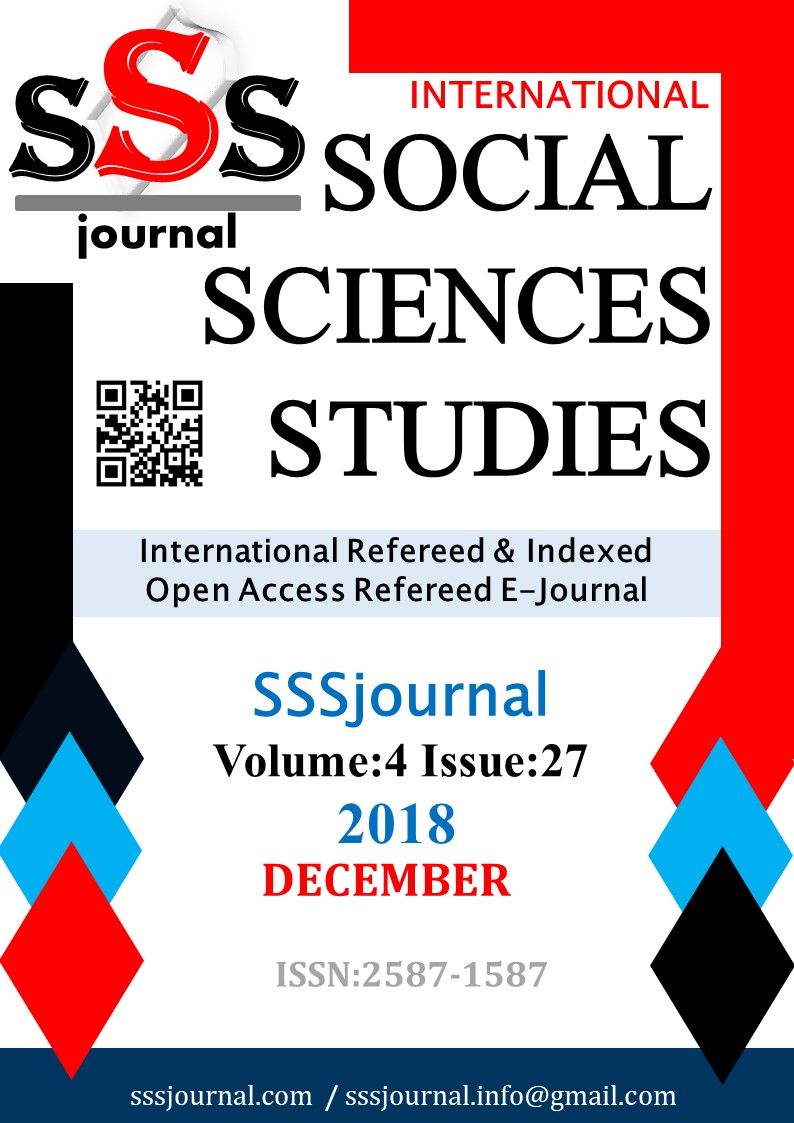Author :
Abstract
Adli sosyal hizmet kavramı son dönemlerde sıklıkla kullanılan bir terim haline gelmiştir. Adli sosyal hizmet, hem cezai hem de medeni yasaları içeren hukuki konular ve davalar ile ilgili sosyal hizmet uygulamalarını, ayrılma, boşanma, ihmal, ebeveynlik haklarını sonlandırma ile çocuk koruma konularını, çocuk ve partner istismarını, çocuk ve yetişkin adalet hizmetlerini, sosyal yardımlaşma haklarını içeren bir kavramdır. Bu noktada, adli sosyal hizmet, sosyal hizmet uygulamalar ile hukuk sisteminin kesişimi olarak tanımlanmaktadır. Sosyal hizmet uzmanları, adli vakaların karmaşıklığı ve çok yönlülüğü nedeni ile bir takım ikilem ve çelişkiler yaşamakta ve hareket tarzını belirleyememektedir. Sosyal hizmet mesleği, bir disiplin olarak belli kural, ilke, kaide, mesleki standartlar, bilimsel alt-yapı ve etik değerler doğrultusunda çalışmaktadır. Bu nedenle sosyal hizmet ve hukuk, kendi etik kurallarını belirleyen etik standartlara dayalı mesleklerdir. Bu noktada sosyal hizmet uzmanlarının sosyal hizmet mesleğinin etik ilkelerine duyarlı davranma sorumluluğu bulunmaktadır. A.B.D. Ulusal Adli Sosyal Hizmet Uzmanları Örgütü (1987) yayınladığı etik kurallarla, adli sosyal hizmet uzmanının uygulamada karşılaştığı ikilemleri ortaya koymuştur. Böylece her bir adli sosyal hizmet uzmanı iyi oluşu teşvik edecek, potansiyel zararları en aza indirecek ve adli sosyal hizmetin herkes için eşit kalitede verilmesini teşvik edecektir. Bu çalışmanın amacı, adli sosyal hizmette etik konusu irdelemek ve adli sosyal hizmet uzmanının etik kurallara uygun olarak A.B.D.Ulusal Adli Sosyal Hizmet Örgütü’ne meslektaşlara ve işverenlere, müracaatçıya ve topluma yönelik etik sorumluluklarını özetlemektir.
Keywords
Abstract
The concept of forensic social work has become a frequently used term in recent times. Forensic social work is a concept including legal issues and litigation, both criminal and civil, social work practices related to cases, child custody issues, involving separation, divorce, neglect, termination of parental rights, the implications of child and spouse abuse, juvenile and adult justice services, and social assistance rights. At this point, forensic social work is defined as an intersection between social work practices and legal system. Due to the complexity and versatility of forensic cases, social workers may experience a number of dilemmas and contradictions, and cannot determine the mode of action. The social work profession works as a discipline in accordance with certain rules, principles, bases, professional standards, scientific infrastructure and ethical values. Therefore, social work and law are professions based on ethical standards that determine their own code of ethics. Herein, social workers have the responsibility to be sensitive to the ethical principles of the social work profession. US National Organization of Forensic Social Work (1987) has published the ethical rules and the dilemmas faced by the forensic social worker in practice. The forensic social worker, in accordance with these codes of ethics, promises to follow the Code of Ethics of Forensic Social Work Practitioner, and to fulfill its obligations to the community, other professions and their organizations, and members of the National Organization of Forensic Social Work. Thus, each of the Forensic Social Worker will promote the well-being, minimize the potential harm, and promote the equal quality of forensic social work for all. The aim of this study is to cite the ethical issues in forensic social work practice, and to summarize the ethical responsibilities of forensic social workers towards the National Forensic Social Service Organization, employers, colleagues, clients and society.
Keywords
- Ashford, J.B. (2015). The Changing Face of Forensic Social Work Practice: An Overview, Part XIV-
- Ashford, J.B. (2015). The Changing Face of Forensic Social Work Practice: An Overview, Part XIV-Forensic Social Work, (Ed. Corcoran, K and Roberts, A. R.) Social Worker’s Desk References-3rd Edition, Oxford University Press, USA
- Aykaç, A. 2016. Etik karar verme süreci. http://docs.neu.edu.tr/staff/asli.aykac, Erişim tarihi: 23.11.2018
- Blennberger, E. (2006). Ethics in Social Work- An Ethical Code for Social Work Professionals, Akademikerförbundet SSR, Stockholm, Sweden.
- Butters, R.P. (2011). The Ethics of Practicing Forensic Social Work, Journal of Forensic Social Work, 1(1);61-72. https://doi.org/10.1080/1936928X.2011.541202
- Congress, E. (2014). Law and social work ethics in forensic social work, Social Work Symposium Başkent University, Ankara.
- Gökçearslan,Çifci, E. ve Gönen, E. (2011). Sosyal Hizmet Uygulamalarında Etik Karar Verme Süreci, “Toplum ve Sosyal Hizmet”, 22(2)-149-160
- Gönültaş, M.B. (2016). Adli sosyal hizmet: Adalaet mekanizmasındaki yeri ve önemi, (Ed. Yücel, D. ve Gönültaş, M.B.) Adli sosyal hizmet-Yaklaşım ve Müdahale, Nobel Yayınları,Ankara.
- Kırel, Ç. (2010). Örgütlerde etik davranışlar ve yönetimi, Özkalp, Enver (Ed.), Örgütsel Davranış, Anadolu Üniversitesi Yayın No:1468, AÖF Yayın No:782
- Maschi, T. and Killian, M.L. (2009). Defining collaborative forensic social work with diverse populations,(Ed.) Maschi,T., Bradley, C. and Ward, K., Forensic Social Work-Psychosocial and legal issues in diverse practise settings, Springer Publishing Company, Newyork,US.
- Maschi, T. And Heer, C. (2012). A guide to forensic social work and advancing justice and fairness in the courts, Webinar Series- FSW, 30th NOFSW Annual Conference, USA
- National Organization of Forensic Social Work (NOFSW) (1987). Code of Ethics.
- National Organization of Forensic Social Work (NOFSW) . (1997). What is forensic social work? Retrieved on May 9, 2007, from http://www.nofsw.org/
- Özkaya,M.C. (2018). Adalet sistemine yardımcı bir meslek olarak sosyal hizmet uzmanı/sosyal çalışmacılar, www.sosyalhizmetuzmani.org, Erişim tarihi: 30.10.2018
- Reamer, F.G. (2004). Ethical and legal standards in social work, Consistency and conflict. Families inSociety: The Journal of Contemporary Social Services, 86(2), 163-169. https://doi.org/10.1606/1044-UNICEF. 2013. Çocuk adalet sisteminde sosyal çalışmanın rolü. UNICEF Çocuk Koruma Birimi, www.unicef.org/ceecis
- Wody, S.G. 1998. Clinical reference for critical care nursing, AACN, Edit: Barlus, B. Fourth Edition.





